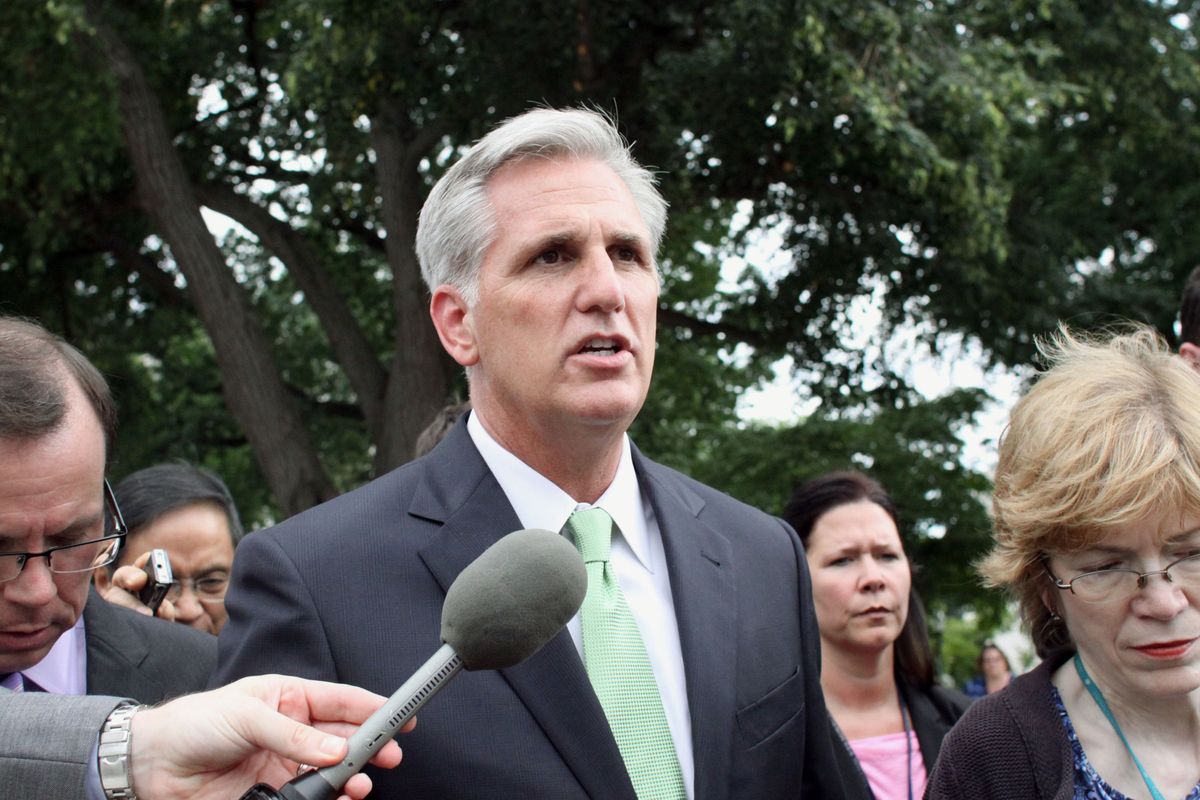House GOP picks new leader, whip
McCarthy’s top-post win caps short political career

WASHINGTON – House Republicans on Thursday recast their leadership, electing California’s Kevin McCarthy and Louisiana’s Steve Scalise to the second- and third-ranking positions.
In secret ballots among the 233 Republicans in the House of Representatives, McCarthy was chosen to be majority leader, while Scalise won election as majority whip. The results give Southern conservatives new clout near the top, show the limits of tea party power and, not least, ratify McCarthy’s remarkable rise.
“They elected a guy who’s the grandson of a cattle rancher and the son of a firefighter,” McCarthy said. “Only in America can you get that opportunity.”
For his part, Scalise said: “We’ve got solid conservative solutions to the problems that face this country.”
A genial 49-year-old native of Bakersfield, California, McCarthy was an early front-runner, driving most other candidates to drop out before the Thursday election. Making a regional point, he was nominated Thursday by a Southerner, Rep. Tom Graves of Georgia.
McCarthy’s sole challenger, conservative Rep. Raul Labrador of Idaho, entered the race late last week and failed to amass broad support.
McCarthy will replace Rep. Eric Cantor of Virginia, who is stepping down early following his shocking primary defeat by a political novice affiliated with tea party activists. Cantor will serve out the remainder of his term this year as a rank-and-file member.
McCarthy’s ascension created the opening at House majority whip, the position he has held since 2011. Scalise beat Reps. Peter Roskam of Illinois and Marlin Stutzman of Indiana. The House leadership shuffle commences once Cantor steps down on July 31, when Congress breaks for its five-week summer recess. New elections will be held following the November general election.
McCarthy effectively locked up his victory early, clearing the field of higher-profile potential challengers and deploying his existing vote-counting organization. The whip race was more neck and neck, as the candidates made their pitches to state delegations and individual members.
As whip, McCarthy was No. 3 in the House leadership, responsible for counting votes and cajoling lawmakers to support the leadership’s agenda. He’s endured some high-profile losses, a reflection, in part, on increased member independence and the loss of traditional tools of political persuasion, such as earmarks.
“He’s occasionally broken some glass,” said Rep. Thomas Massie, R-Ky., but “I think most people say that he’s not been an iron-fisted whip.”
As majority leader, McCarthy will set the House schedule, determining what legislation moves and under what circumstances.
“Now, he’ll control the agenda,” noted Rep. Devin Nunes, R-Calif., a longtime ally whose rural district abuts McCarthy’s, “and he’s got to have a close working relationship with all the committee chairmen.”
Not least, his new position makes him the heir apparent to replace Speaker of the House John Boehner, whenever the 64-year-old Ohioan decides he’s had enough. McCarthy’s proximity to the speakership, though ascension is not guaranteed, only adds to the aura of power that, in turn, can translate to power.
Labrador’s ill-fated challenge to McCarthy was premised on tea party discontent with the House Republican establishment, of which Cantor and McCarthy are exemplars. Politically, little separates the current and future majority leader.
A graduate of California State University, Bakersfield, where he also earned a master’s of business administration, McCarthy ran a deli and a batting range before starting his political career with his 2002 election to the California state Assembly. In 2006, he first won election to the House.